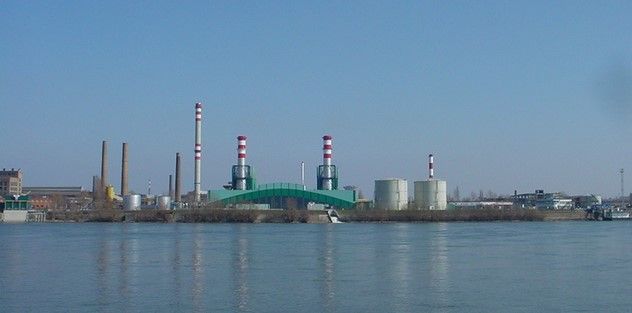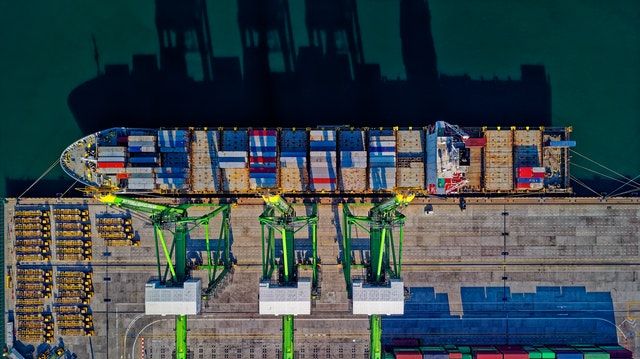British chemical companies are having to cope with no longer being a part of the EU’s signature piece of chemical industry legislation – REACH.
Instead, all chemical products destined for the British market (but not Northern Ireland) must register under the new UK REACH system.
At present, most of the data being entered into UK REACH is already being held in the EU version. Some of it was placed there by UK chemical companies paying the fees and processing the data and paperwork to give their chemical products access to the entire single market.
The UK’s Chemical Industry Association (CIA) estimates that the submitting process cost British chemical businesses a combined £500 million. With chemical companies now having to reinvest into UK REACH, this time for an estimated cost of £1 billion, Steve Elliot, head of the CIA, has described himself as struggling with “the illogicality of what we’re having to do.”

In spite of this, the British government remains committed to its registration programme.
“While the transition to UK REACH will take some adjustment,” explained Rebecca Pow, Parliamentary Under Secretary of State at the UK’s Department for Environment, Food and Rural Affairs (Defra), “we believe that the benefits of having control of our own laws outweigh the costs.”
However, the added bureaucratic costs are already having a negative impact on the health of the chemical industry – and not just in Britain.
For example, the German chemical powerhouse BASF, which sells around 1,200 chemical products in British markets, estimates that UK REACH could cost the company £70 million. An expense that may make some chemical products non-profitable.
“If the costs of bringing products to the U.K. market rise to make them uneconomic, we are not going to do it and make a loss,” said Geoff Mackey, director of communications and sustainability at BASF in Britain.
The scale of the work involved to register so many chemical substances, including administration and fees, may mean that a large number of products just aren’t worth selling in the UK. As BASF’s Regulatory Affairs Manager, Neil Hollis, explains, these “significant” costs will be “disproportionate relative to the UK’s market size”.

Of the 1,200 chemical substances BASF currently imports to the UK, “there are estimated to be 700 chemicals [which] UK firms use but are not produced domestically.”
In a highly integrated industry, the knock-on effect of missing substances could be considerable. “Likely consequences [of UK REACH],” notes the industry journal The Manufacturer, “include UK affected chemical supply chains becoming more expensive, resulting in the breadth of chemicals and suppliers available to UK users narrowing.” Adding that, “It could also lead to reduced investment in the UK…”
“The combination of Brexit and UK REACH regulations isn’t very helpful when companies are considering where to site new investment,” observes Paul Hodges, chairman of the chemical industry focused New Normal Consulting.
Alternatively, UK chemical companies may take the opportunity to fill supply gaps - a once in a generation chance to find a market niche.

However, the situation could become far more extreme should EU and UK standards and laws on chemical products begin to diverge.
This could easily happen if either the UK or EU wants to make new trade deals with other countries and trade blocs. For example, it has long been suggested that the UK may be asked to lower some of its standards on GM products or food safety to ensure a trade deal with the US.
What if a US/UK trade deal rested on the UK diverging its chemical industry standards away from EU REACH? Would this cause undue friction of trade between EU and UK chemical companies?
Additionally, the safety standards on chemical products that have yet to be discovered could be viewed quite differently by two separate regulatory bodies.
For now, this political, diplomatic, and economic football has been kicked into the long grass. This allows UK government spokespersons to scoff at suggestions of the UK ever lowering its standards.
For her part, Gabrielle Edwards, the UK’s Department for Environment, Food and Rural Affairs’ Deputy Director for Chemicals, Pesticides and Hazardous Waste, doesn’t believe that the UK will diverge away from EU standards ‘just for the sake of it’ and appreciates the challenges that chemical businesses are experiencing as they take on UK REACH’s extra administrative burden.
Dr Richard Daniels, Director of the Health and Safety Executive’s Chemicals Regulation Division, also believes that the situation is not as dire as some make out. Instead, he sees UK REACH as creating a number of opportunities, such as ‘independent regulatory decision making’ and ‘better alignment of operational delivery processes across regimes’.
Yet such statements can make the business world uneasy.
“Three weeks in and a clear forward strategy is yet to emerge, resulting in continued uncertainty over exactly how much cooperation there will be between the UK and EU,” notes The Manufacturer. “To diverge or not to diverge, that is the question. [For] if 2020 has taught industry one thing, it’s that responsiveness, agility and flexibility are key enablers of competitiveness and growth. The jury is still out on whether UK REACH will aid or hinder those efforts.”

Simon Tilling, a law Partner at Burges Salmon, has studied the data on the practicalities of running UK REACH to see if it offers insight into how the situation will play out.
His findings show that the European Chemicals Agency (ECHA) has an annual budget of about €110m, 600 staff, and a support network of relevant authorities in the 27 member states in which to administer EU REACH.
Conversely, the UK’s Health & Safety Executive has an estimated €16m budget, 50 staff, and must go it alone in establishing and maintaining a chemicals register which is likely to be as large as the EU’s.
From this he concludes that UK REACH is likely to find closer cooperation with the ECHA and EU REACH a much cheaper and simpler option.
It is a solution that is described by Chloe Alexander, a Trade Campaigner for the CHEM Trust charity, as “convergence not divergence.”

Predicting what UK REACH will look like in years to come is not easy. Even the closing date for the registration of chemical substances is uncertain.
As the industry journal The Chemical Engineer states, “THE UK Government has extended the deadline for UK chemicals companies to register their products with the new system that will come into place following the Brexit transition period. Companies will now have up to six years to complete registrations, up from two years.” There have even been hints of a further extension if the industry requires.
This creates a dilemma for chemical industry professionals, uncertain is the time, effort, and fees for registering a chemical substance in UK REACH will be worthwhile. For example, the registration fees for both the UK and EU system are the same, despite the EU market being so much larger.

Naturally, most chemical producers will be left with little choice but to comply and hope that the ‘sunny uplands’ of trade promised by Brexit campaigners during the 2016 referendum will develop as time passes.
As the industry journal The Manufacturer, concludes, “clearly there is a huge amount of work to be done over the coming weeks and months in order to give businesses confidence that UK REACH is the right strategy to pursue and that a U-turn isn’t on the horizon. Especially if the UK chemical sector is to successfully overcome the challenges and grasp the opportunities of transitioning to a new regulatory framework.”
Photo credit: Pexels, Tom Fisk from Pexels, Ulrik De Wachter from FreeImages, paul quinlan, Karoly Feher, Svilen Milev, & Georg from Pexels